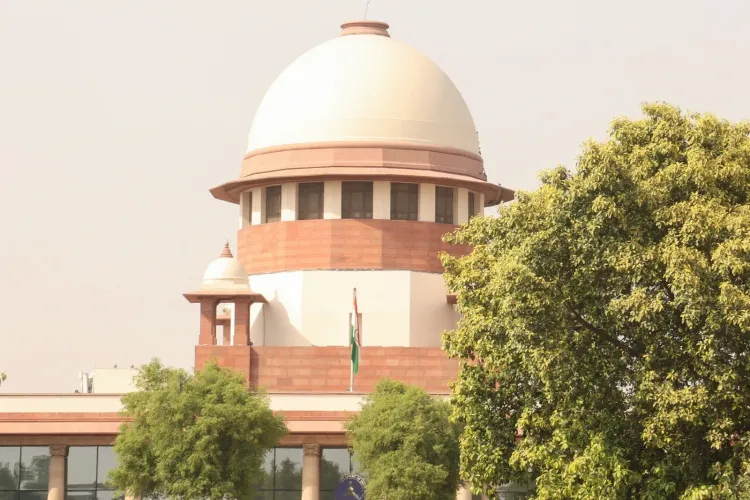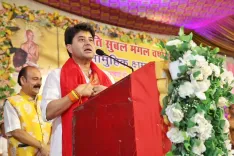Will the SC Address Concerns About Encroachment of Kolleru Lake in Andhra?

Synopsis
Key Takeaways
- Kolleru Lake is a vital ecosystem facing serious threats.
- The case involves illegal encroachments and ecological degradation.
- The Supreme Court's intervention could lead to important environmental reforms.
- Public awareness and legal action are crucial for environmental preservation.
- The NGT's role and decisions are under scrutiny in this case.
New Delhi, May 19 (NationPress) The Supreme Court has agreed to review a petition that highlights the alarming destruction and encroachment of the Kolleru Lake in Andhra Pradesh, recognized as one of the largest freshwater lakes in India. A bench consisting of CJI B.R. Gavai and Justice A.G. Masih issued a notice regarding the matter, requesting responses from the Centre, the National Wetlands Authority, the Andhra Pradesh government, and other entities involved as respondents to the petition.
Kolleru Lake, designated as a Ramsar site, was acknowledged as a wetland of international significance under the Ramsar Convention in 2002.
The petition asserts that encroachments and illegal constructions have significantly jeopardized the ecological equilibrium of Kolleru Lake, which serves as a crucial habitat for numerous migratory bird species.
Filed by advocate Neha Rai, the plea seeks the Supreme Court’s intervention against the proposed “unauthorized and environmentally harmful” project in Andhra Pradesh aimed at mitigating salinity in the ecologically sensitive Kolleru Lake. This project commenced without securing essential environmental clearances or conducting any scientific assessments.
Previously, the appellant, Dr. Patanjali Sastry, a renowned environmental and social activist known for his exceptional commitment to ecological conservation, approached the National Green Tribunal (NGT) requesting a declaration that the proposed project violates environmental regulations. He also sought the formation of an independent expert committee to evaluate the ecological consequences and identify encroachments.
In his appeal to the Supreme Court, the appellant noted that while the NGT provided directions regarding compliance with environmental laws, it failed to address other critical requests, rendering its decision incomplete and legally unsound.
The green tribunal allegedly neglected to address the substantive requests, despite being presented with compelling documentary evidence, including government reports, photographs, and official correspondence confirming extensive encroachment and ecological degradation of Kolleru Lake, the appeal contended.
“This failure represents a lack of due diligence and a breach of the statutory responsibilities conferred on the Tribunal under Sections 14 and 15 of the NGT Act, 2010,” the appeal emphasized.






